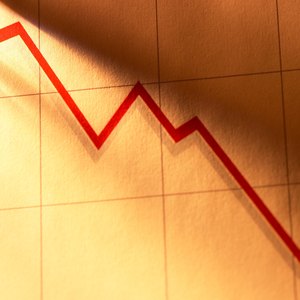
The primary purpose of a stock market is to regulate the exchange of stocks, as well as other financial assets. Such regulation ensures a fair environment for not only investors, but also the corporations whose stocks are traded in the market. A healthy, fair and transparent stock market helps the economy grow, thereby benefiting practically every member of the society.
Matching Buyers and Sellers
First and foremost, the stock market is essentially a modern grand bazaar. The primary function of the stock market is to bring sellers and buyers together and ensure easy, quick and fair transactions between those who wish to buy shares and those who want to sell them. If you wish to buy Microsoft stock, for instance, you -- or rather the broker who will execute the trade on your behalf -- know exactly how to contact those who have Microsoft stock for sale and access the sales prices these people and institutions have published on the electronic boards in the stock exchange. In modern stock markets, buyers and sellers are matched electronically, which makes it possible to transact almost instantaneously. This sort of speed and efficiency means low costs for the broker, which in turn translates to low brokerage commissions.
Fair Trades
Rules and regulations in the stock market have been designed to ensure that both buyers and sellers get the best possible deal. To accomplish this goal, stock exchanges make the detailed transaction data available to the public free of charge. At what price a share recently as well as historically changed hands, how many shares have traded, and at what prices buyers and sellers are willing to buy or sell at any given moment can be accessed within seconds. This makes it easy for investors to make informed trading decisions. The system also gives automatic priority to the buyer bidding the highest price and to the seller who offers shares at the lowest cost.
Risk Management
Stocks always involve risk, and the shares of even a highly successful firm can depreciate sharply. However, regulators attempt to minimize sharp declines in prices, which would jeopardize the life savings of most investors. To do so, they first screen the stocks and only allow companies that have healthy balance sheets to offer stocks to investors in the stock exchange. For continued listing in a stock market, the stock's issuer has to periodically publish financial statements. It is also prohibited for "insiders," who have access to non-public information, to buy or sell shares based on such privileged data. All of these measures help limit nasty surprises for investors and minimize the chance of sharp price drops.
Access to Capital
Another purpose of the stock market is to provide easy and quick access to capital for firms. Companies wishing to sell stocks to the general public can reach millions of investors through the stock exchange. Buyers purchase shares with the confidence that they can sell their holdings quickly and at a fair price later on. This function of the stock market, in particular, helps funds flow to firms that can put them to the best use. By raising billions of dollars as soon as an investment opportunity arises, large firms can supply products and services that make life easy, while providing jobs to the public.
References
Writer Bio
Hunkar Ozyasar is the former high-yield bond strategist for Deutsche Bank. He has been quoted in publications including "Financial Times" and the "Wall Street Journal." His book, "When Time Management Fails," is published in 12 countries while Ozyasar’s finance articles are featured on Nikkei, Japan’s premier financial news service. He holds a Master of Business Administration from Kellogg Graduate School.

